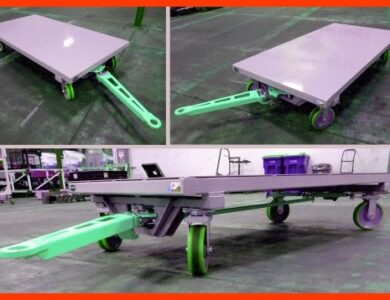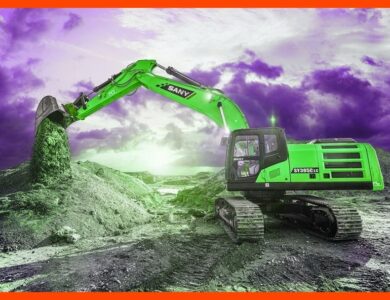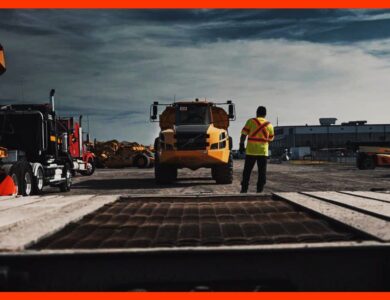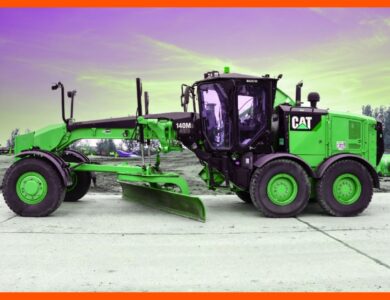Heavy Equipment
The Ultimate Guide to Heavy Equipment Transport
The Ultimate Guide to Heavy Equipment Transport

The Ultimate Guide to Heavy Equipment Transport
When it comes to moving heavy equipment, you need a reliable and efficient transport solution. Whether you’re in the construction industry, agriculture, mining, or any other sector that relies on heavy machinery, the safe and secure transport of your equipment is of paramount importance. In this comprehensive guide, we, as seasoned experts in the field, will provide you with invaluable insights and information on heavy equipment transport. By the time you finish reading this article, you’ll be well-equipped to make informed decisions and ensure the seamless transportation of your heavy machinery.
ADVERTISEMENT
Understanding the Importance of Heavy Equipment Transport
The Backbone of Industry
Heavy equipment, including bulldozers, excavators, cranes, and more, forms the backbone of many industries. These machines are not only expensive but also crucial for various operations. When you need to move them from one location to another, the last thing you want is for the transport process to cause damage or delays.Safety and Compliance
Safety and compliance are non-negotiable when it comes to heavy equipment transport. The equipment must be secured properly, and all regulations must be adhered to. Ensuring the safety of the equipment and the people involved is paramount.Choosing the Right Heavy Equipment Transport Service
Research and Due Diligence
Selecting the right heavy equipment transport service is the first and most critical step in ensuring a smooth move. Start by conducting thorough research to find companies with a solid reputation and a track record of handling heavy equipment with care.Specialized Equipment
The transport company you choose should have the necessary specialized equipment and expertise to handle heavy machinery. This includes flatbed trailers, lowboys, and other heavy-duty vehicles designed to transport oversized loads.Licensing and Insurance
Check that the transport company is fully licensed and insured. This is essential to protect your investment and ensure that you are covered in case of any unforeseen circumstances during transportation.Customer Reviews and Recommendations
Don’t just take a company’s word for it; seek out customer reviews and recommendations. Hearing about other people’s experiences can give you valuable insights into the quality of service provided.Preparing for Heavy Equipment Transport
Inspection and Documentation
Before loading your heavy equipment onto a transport vehicle, conduct a thorough inspection. Document any existing damage and take photographs. This will serve as a reference point in case any issues arise during transit.Securing the Equipment
Properly secure the equipment to the transport vehicle using appropriate restraints. This is crucial to prevent shifting and damage during transportation.Route Planning
Work closely with the transport company to plan the most suitable route for your equipment. Avoid routes with low clearances, weight restrictions, or other potential obstacles.During Transport
Monitoring and Communication
Stay in constant communication with the transport company during transit. This ensures that you are aware of the progress and can address any issues promptly.Adhering to Regulations
Ensure that the transport company is adhering to all relevant regulations and permits. Compliance is vital to avoid fines and delays.After Transport
Inspection and Documentation
Once your heavy equipment reaches its destination, conduct another thorough inspection. Document the condition of the equipment, and ensure that any issues are resolved before accepting delivery.Maintenance and Servicing
Depending on the distance and duration of the transport, your equipment may require maintenance and servicing. It’s essential to address any wear and tear promptly to keep your machinery in optimal condition. In the world of heavy equipment transport, there is no room for error. The safe and efficient movement of your valuable machinery depends on careful planning, the right transport service, and adherence to safety regulations. We hope this comprehensive guide has provided you with the knowledge and insights necessary to make informed decisions and ensure the successful transport of your heavy equipment.Specialized Heavy Equipment Transport
When it comes to moving heavy equipment, the size and weight of the machinery can vary significantly. Therefore, you need a transport service that specializes in the particular type of equipment you’re dealing with. Let’s delve into some specific considerations for various heavy machinery:Construction Equipment
Construction machinery such as bulldozers, excavators, and cranes require special attention during transport. The transport company you choose should be experienced in securing and moving these robust and often irregularly shaped machines. Safety is paramount when dealing with heavy construction equipment, so the right transport service should be well-versed in best practices.Agricultural Machinery
In the agriculture industry, tractors, combines, and other farming equipment are indispensable. Transporting these machines requires expertise in handling the unique needs of agricultural machinery. Ensuring that delicate components and mechanisms remain undamaged during transit is crucial.Mining Equipment
Mining equipment, including massive dump trucks, drilling rigs, and loaders, can be extremely challenging to transport. These machines often have components that are sensitive to movement, and they come in various shapes and sizes. A specialized transport service can provide the necessary support, including custom cradles and supports to secure the equipment.Oversized Loads
In many cases, heavy equipment falls under the category of oversized loads. These loads often require special permits and escorts to ensure safe transport. The right transport service should be well-versed in handling oversized loads, including navigating complex regulations and managing the logistics of these exceptional hauls.International Heavy Equipment Transport
Transporting heavy equipment across international borders adds another layer of complexity. Here are some essential factors to consider when moving your machinery abroad:Customs and Regulations
Different countries have varying customs and regulations when it comes to importing heavy equipment. It’s crucial to work with a transport service that understands the legal requirements of the destination country and can help you navigate customs efficiently.Documentation
The paperwork associated with international transport can be extensive. Your transport service should assist in completing all necessary documents, including bills of lading, certificates of origin, and any permits required for the specific equipment.Shipping Methods
Depending on the destination and your equipment’s size, you may need to choose between different shipping methods, such as container shipping, roll-on/roll-off (Ro-Ro) transport, or flat rack containers. Your transport service should advise you on the most suitable method for your needs.Environmental Considerations
Heavy equipment transport can have environmental implications, particularly for long distances. It’s essential to choose a transport service that takes environmental responsibility seriously. This may involve selecting eco-friendly transport options or optimizing routes to reduce carbon emissions.Cost Considerations
While the safety and security of your heavy equipment are paramount, cost considerations are also essential. The right transport service should offer competitive pricing while maintaining high-quality service standards. Be sure to obtain detailed quotes and consider all factors, including distance, equipment size, and any special requirements.Choosing the Best Heavy Equipment Transport Service
Selecting the best transport service for your heavy equipment is a crucial decision that can impact your business’s efficiency and success. To recap, here are the key steps to ensure you make the right choice:- Conduct thorough research and due diligence on potential transport services.
- Verify their specialization in handling your type of heavy equipment.
- Check for proper licensing and insurance.
- Seek recommendations and read customer reviews to gauge the quality of service.
- Communicate openly and regularly with the chosen transport service throughout the process.
- Ensure that they adhere to all safety regulations and compliance requirements.
URL Copied



